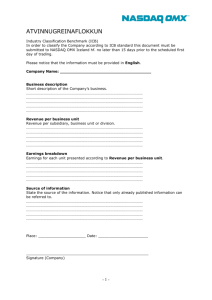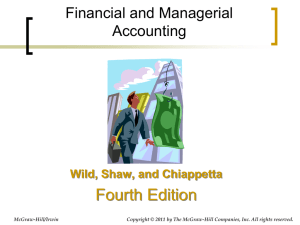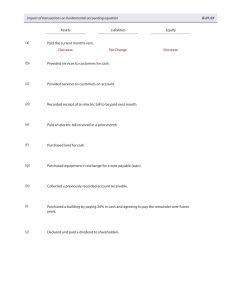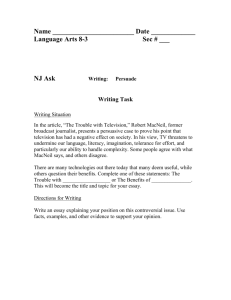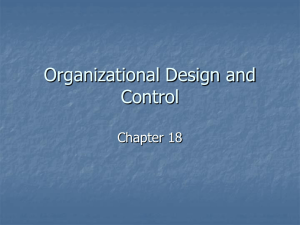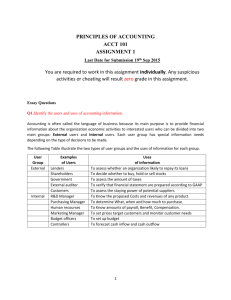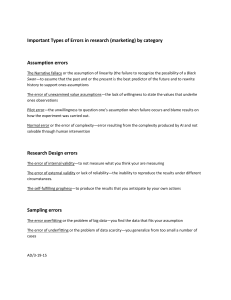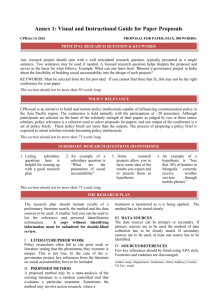presentation
advertisement
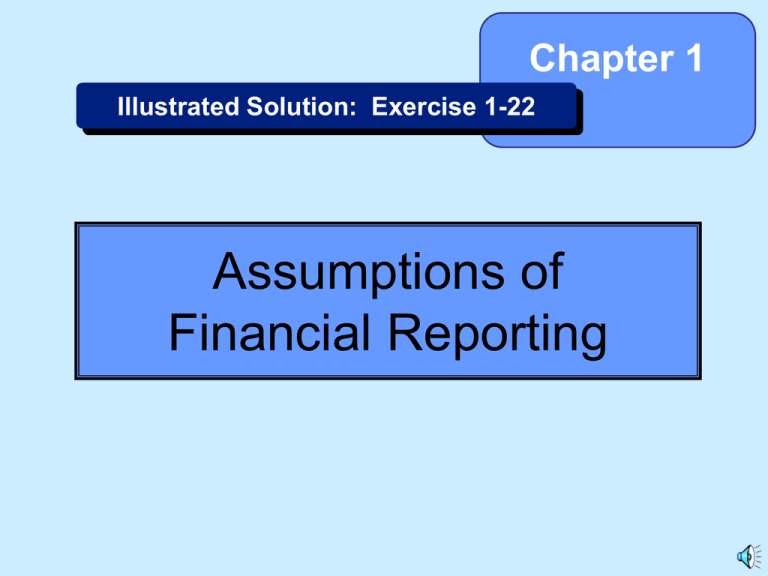
Chapter 1 Illustrated Solution: Exercise 1-22 Assumptions of Financial Reporting 1-1 Background Information 1-2 In each of the following independent situations, an example is given involving the five traditional assumptions of the accounting model. For each situation, identify the assumption involved. Part 1 1-3 Situation A subsidiary of Parent Inc. was exhibiting poor earnings performance for the year. In an effort to increase the subsidiary’s reported earnings, Parent Inc. purchased products from the subsidiary at twice the normal markup. Part 1 1-4 Situation A subsidiary of Parent Inc. was exhibiting poor earnings performance for the year. In an effort to increase the subsidiary’s reported earnings, Parent Inc. purchased products from the subsidiary at twice the normal markup. Solution: Arm’s-Length Assumption By selling inventory to the parent company at a price other than the market price, the transaction between the parent and its subsidiary violated the arm’s-length assumption. Part 2 1-5 Situation When preparing the financial statements for MacNeil & Sons, the accountant included certain personal assets of MacNeil and his sons. Part 2 1-6 Situation When preparing the financial statements for MacNeil & Sons, the accountant included certain personal assets of MacNeil and his sons. Solution: Specific Economic Entity The assets of owners of a company are not to be included when disclosing the assets of the company itself. Part 3 1-7 Situation The operations of Uintah Savings & Loan are being evaluated by the federal government. During their investigations, government officials have determined that numerous loans made by top management were unwise and have seriously endangered the future existence of the savings and loan. Part 3 1-8 Situation The operations of Uintah Savings & Loan are being evaluated by the federal government. During their investigations, government officials have determined that numerous loans made by top management were unwise and have seriously endangered the future existence of the savings and loan. Solution: Going Concern An assumption made when preparing financial statements is that the company will continue into the foreseeable future. In this example, the continued existence of the savings and loan is in doubt. Part 4 1-9 Situation Pine Valley Ski Resort has experienced a drastic reduction in revenues because of light snowfall for the year. Rather than produce financial statements at the end of the fiscal year, as is traditionally done, management has elected to wait until next year and present results for a two-year period. Part 4 1-10 Situation Pine Valley Ski Resort has experienced a drastic reduction in revenues because of light snowfall for the year. Rather than produce financial statements at the end of the fiscal year, as is traditionally done, management has elected to wait until next year and present results for a two-year period. Solution: Specific Accounting Periods To enhance comparability and consistency as well as to provide periodic financial statement information, the economic life of a company is partitioned into specific accounting periods. By producing financial statements at two-year intervals, instead of annually, this assumption is violated. Part 5 1-11 Situation Colobri Inc. has equipment that was purchased in 1996 at a cost of $150,000. Because of inflation, that same equipment, if purchased today, would cost $225,000. Management would like to report the asset on the balance sheet at its current value. Part 5 1-12 Situation Colobri Inc. has equipment that was purchased in 1996 at a cost of $150,000. Because of inflation, that same equipment, if purchased today, would cost $225,000. Management would like to report the asset on the balance sheet at its current value. Solution: Stable Monetary Units Financial statements assume that the value of the dollar remains the same over time. That is, a dollar can buy just as much today as it can in one year. This assumption ignores the effects of inflation. It is, however, consistent with the historical cost measurement attribute. 1-13 End of Problem

